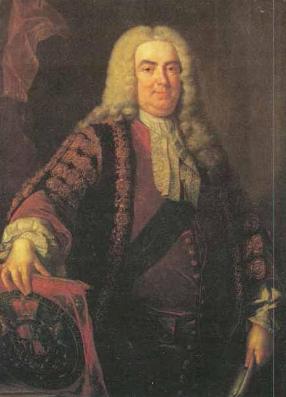poj 3126 Prime Path (bfs)
Prime Path
| Time Limit: 1000MS | Memory Limit: 65536K | |
| Total Submissions: 13813 | Accepted: 7796 |
Description
 The ministers of the cabinet were quite upset by the message from the Chief of Security stating that they would all have to change the four-digit room numbers on their offices.
The ministers of the cabinet were quite upset by the message from the Chief of Security stating that they would all have to change the four-digit room numbers on their offices. — It is a matter of security to change such things every now and then, to keep the enemy in the dark.
— But look, I have chosen my number 1033 for good reasons. I am the Prime minister, you know!
— I know, so therefore your new number 8179 is also a prime. You will just have to paste four new digits over the four old ones on your office door.
— No, it’s not that simple. Suppose that I change the first digit to an 8, then the number will read 8033 which is not a prime!
— I see, being the prime minister you cannot stand having a non-prime number on your door even for a few seconds.
— Correct! So I must invent a scheme for going from 1033 to 8179 by a path of prime numbers where only one digit is changed from one prime to the next prime.
Now, the minister of finance, who had been eavesdropping, intervened.
— No unnecessary expenditure, please! I happen to know that the price of a digit is one pound.
— Hmm, in that case I need a computer program to minimize the cost. You don't know some very cheap software gurus, do you?
— In fact, I do. You see, there is this programming contest going on... Help the prime minister to find the cheapest prime path between any two given four-digit primes! The first digit must be nonzero, of course. Here is a solution in the case above.
1033The cost of this solution is 6 pounds. Note that the digit 1 which got pasted over in step 2 can not be reused in the last step – a new 1 must be purchased.
1733
3733
3739
3779
8779
8179
Input
One line with a positive number: the number of test cases (at most 100). Then for each test case, one line with two numbers separated by a blank. Both numbers are four-digit primes (without leading zeros).
Output
One line for each case, either with a number stating the minimal cost or containing the word Impossible.
Sample Input
3 1033 8179 1373 8017 1033 1033
Sample Output
6 7 0
题意是说,给定两个四位素数a b 问从a变换到b,最少需要变换几次.
变换的要求是,每次只能改变一个数字,而且中间过程得到的四位数也必须为素数.
因为提到最少变换几次,容易想到bfs,bfs第一次搜到的一定是最短步数.
先打个素数表
然后写个函数判断两个四位数有几位数字不同,如果只有一位,返回true,否则返回false
然后竟然wa了两次!
下表写错!
pri[k++]=i;是先给pri[k]赋值,再k++;
pri[++k]=i;才是先增加,再赋值.这个搞错了.所以wa了....sad
/************************************************************************* > File Name: code/2015summer/searching/F.cpp > Author: 111qqz > Email: rkz2013@126.com > Created Time: Fri 24 Jul 2015 01:16:23 AM CST ************************************************************************/ #include<iostream> #include<iomanip> #include<cstdio> #include<algorithm> #include<cmath> #include<cstring> #include<string> #include<map> #include<set> #include<queue> #include<vector> #include<stack> #define y0 abc111qqz #define y1 hust111qqz #define yn hez111qqz #define j1 cute111qqz #define tm crazy111qqz #define lr dying111qqz using namespace std; #define REP(i, n) for (int i=0;i<int(n);++i) typedef long long LL; typedef unsigned long long ULL; const int N =1E4+5; int pri[N],which[N]; int a,b,k; bool flag; int d[N]; bool prime(int x) { for ( int i = 2 ; i*i<=x ;i++ ) { if (x %i==0) return false; } return true; } bool ok (int x,int y) { if (d[y]!=-1) return false; int res = 0; //记录两个数不对应不相等的数字的个数 int xx=x,yy=y; while (x&&y) { if (x%10!=y%10) res++; x = x/10; y = y/10; } // if (res==1) cout<<"x:"<<xx<<" y:"<<yy<<endl; if (res==1) return true; return false; } void bfs() { queue<int>x; memset(d,-1,sizeof(d)); x.push(a); d[a]=0; while (!x.empty()) { int px = x.front(); // cout<<"px:"<<px<<endl; x.pop(); if (px==b) return; for ( int i = 0 ; i< k ; i++ ) { if (ok(px,pri[i])) { d[pri[i]]=d[px]+1; x.push(pri[i]); } } } } int main() { k =0; for ( int i = 1000; i <=9999; i++ ) { if (prime(i)) { pri[k++]=i; } } int T; // cout<<pri[0]<<endl; // cout<<pri[1]<<endl; cin>>T; while (T--) { cin>>a>>b; bfs(); if (d[b]==-1) { cout<<"Impossible"<<endl; } else { cout<<d[b]<<endl; } } return 0; }



